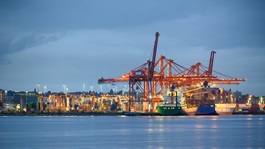Despite the recent lifting of a wide range of sanctions against Iran by the European Union and the United States (for more information, see our legal update), Canada has yet to lift its sanctions against Iran. The Government of Canada is expected very soon to ease sanctions in line with the United States. However, until sanctions have been lifted Canadians are advised to continue to ensure compliance with the current sanctions regime.
Below is a summary of the sanctions in place.
UN Act
Sanctions imposed against Iran by Canada pursuant to the UN Act have been implemented through the Regulations Implementing the United Nations Resolutions on Iran (the UN Regulations). The UN Regulations impose an asset freeze against specific “designated persons” (i.e., those persons identified in UN Security Council Resolution 1737 as being engaged in, directly associated with or providing support for Iran’s nuclear activities or the development of nuclear weapon delivery systems). The UN Regulations also prohibit persons in Canada and Canadians outside Canada from engaging in certain transactions that are deemed to support Iran’s nuclear proliferation activities.
SEMA
Sanctions imposed against Iran by Canada pursuant to the Special Economic Measures Act (SEMA) have been implemented through the Special Economic Measures (Iran) Regulations (the SEMA Regulations).
The SEMA Regulations have a much broader scope than the UN Regulations. The SEMA Regulations impose an asset freeze and commercial embargo against those “designated persons” identified in Schedule 1 to the Regulations. Designated persons under the SEMA Regulations are believed to be persons engaged in nuclear proliferation activities and/or activities related to the development of chemical, biological or nuclear weapons of mass destruction, or former or current senior officials in the Islamic Revolutionary Guard Corps, or individuals and entities related to the aforementioned persons.
The SEMA Regulations impose a general embargo on imports from Iran and exports to Iran, subject to certain exceptions. Thus, it is prohibited for any person in Canada and any Canadian outside Canada:
- to export, sell, supply or ship goods, wherever situated, to Iran, to a person in Iran, or to a person for the purposes of a business carried on in or operated from Iran; or
- to import, purchase, acquire, ship or tranship any goods that are exported, supplied or shipped from Iran after May 29, 2013, whether the goods originated in Iran or elsewhere.
Exceptions to the export embargo include goods required to be exported, sold, supplied or shipped under a contract entered into before a certain date, personal effects, informational materials, correspondence, and packages sent for non-commercial reasons. Exceptions to the import embargo include goods required to be imported, purchased, acquired, shipped or transhipped before May 29, 2013, providing the goods are not of a certain nature (e.g., natural gas, crude oil, petroleum or petrochemical products are not included within the exception), personal effects, informational materials, correspondence, and packages sent for non-commercial reasons.
The SEMA Regulations also prohibit persons in Canada and Canadians outside Canada from:
- transferring, providing or communicating to Iran or any person in Iran “technical data” required for use in specific applications, including the production of petrochemicals, the transportation or storage of crude oil or petroleum or petroleum products, and drilling and mineral surveying and exploration; and
- making an investment in an entity in Iran.
The SEMA Regulations also contain other section-specific prohibitions, such as prohibitions against the provision or acquisition of marketing or financial or other services to, from or for the benefit of Iran or a person in Iran in respect of the import, purchase, acquisition or shipment of natural gas, crude oil or any petroleum or petrochemical products from Iran; the provision or acquisition of financial or other services to, from or for the benefit of a person in Iran (subject to limited exceptions); and the provision or acquisition of insurance or reinsurance to, from or for the benefit of Iran or any entity in Iran.
Finally, the SEMA Regulations contain a broad anti-circumvention clause that prohibits persons in Canada and Canadians outside Canada from doing anything that “causes, assists or promotes, or is intended to cause, assist or promote, any act or thing prohibited by” the SEMA Regulations.
Activities that have as their purpose the safeguarding of human life, disaster relief, or the providing of medicine or medical supplies, are exempted from most of the prohibitions in the SEMA Regulations, as are certain communications technologies that support Internet freedom, and goods used to purify water for civilian and public health purposes.
A person found to have contravened the SEMA Regulations is liable, on summary conviction, to a fine not exceeding $25,000 or to imprisonment for a term not exceeding one year, or to both, or, on conviction on indictment, to imprisonment for a term not exceeding five years. A “person” includes both an individual and an entity.
As a reminder, the Canadian government will not hesitate to enforce the sanctions against Iran. In 2014, an Alberta company was fined $90,000 for trying to export $15 worth of prohibited Viton o-rings, valued at $0.30 each, to Iran.





